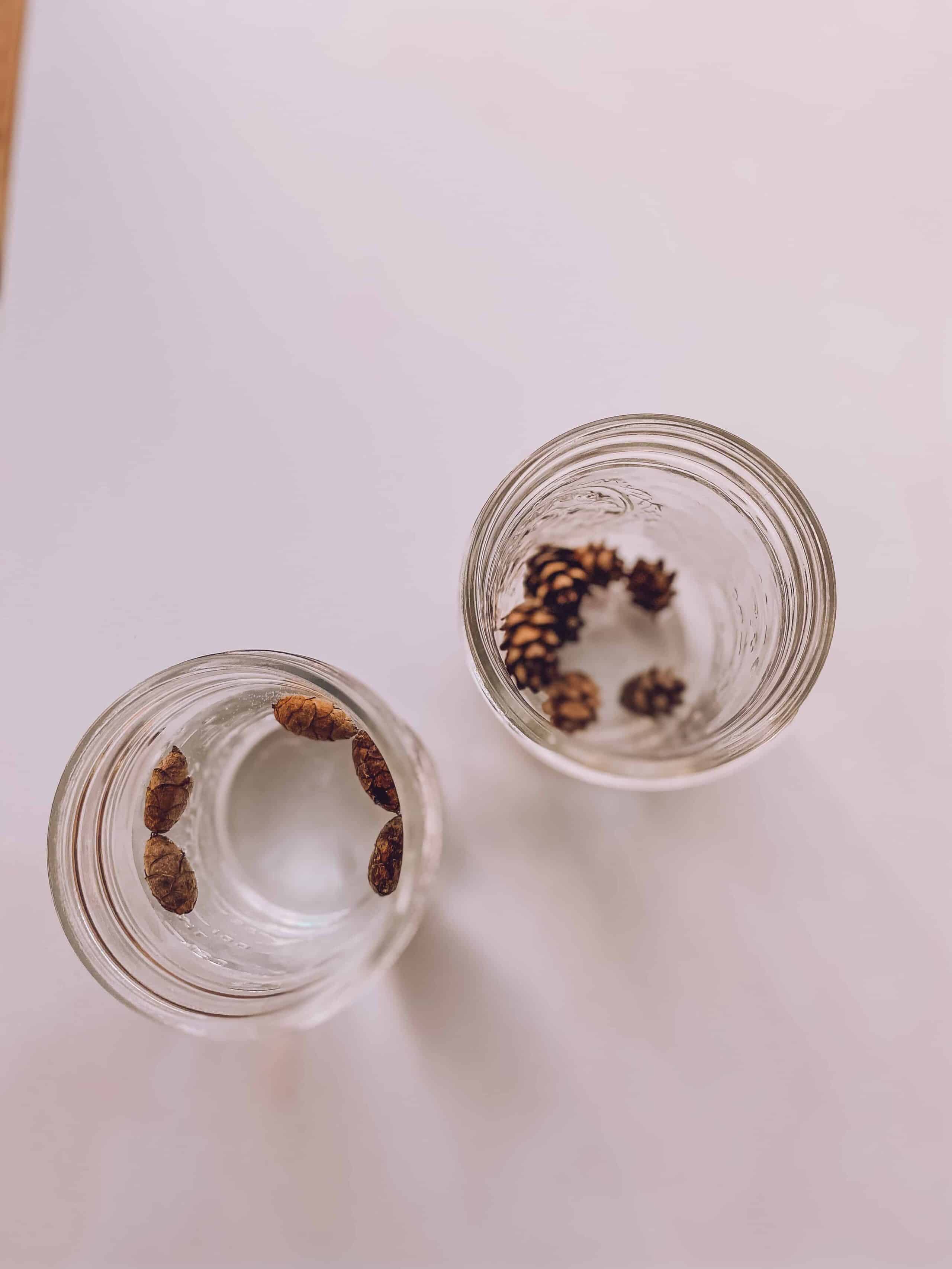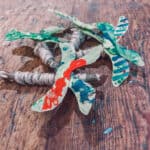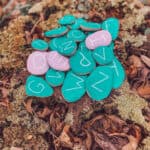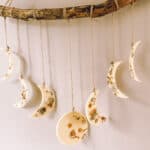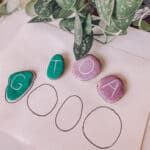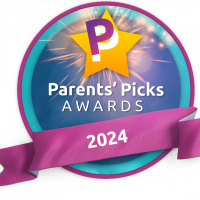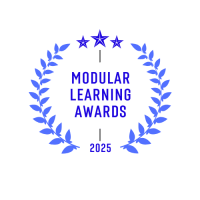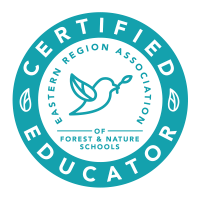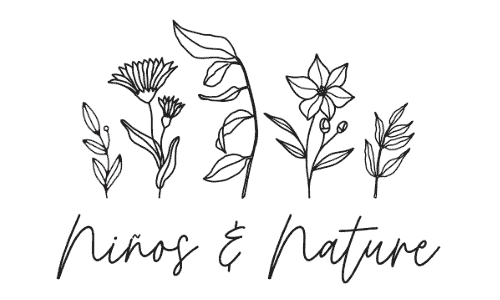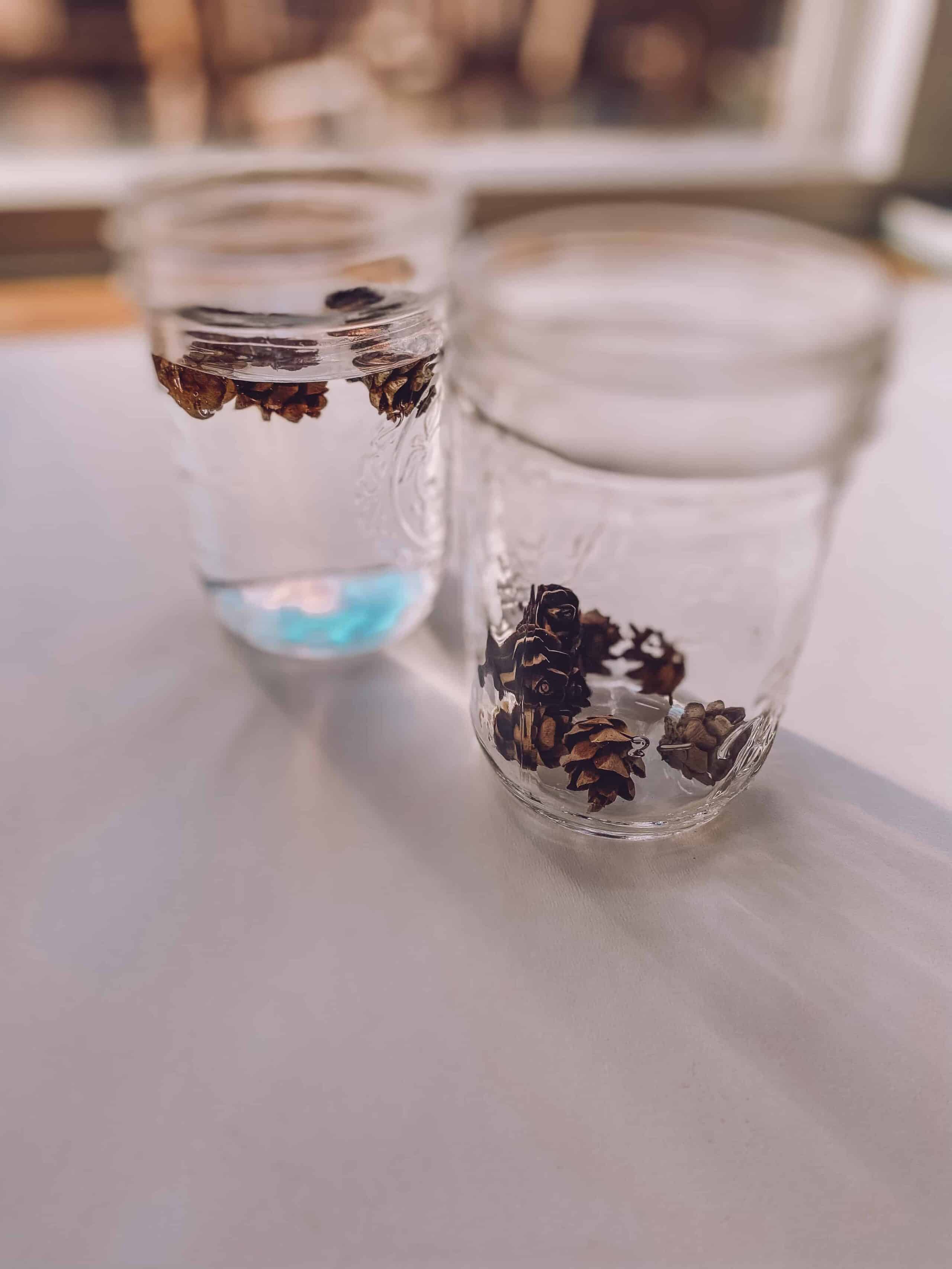
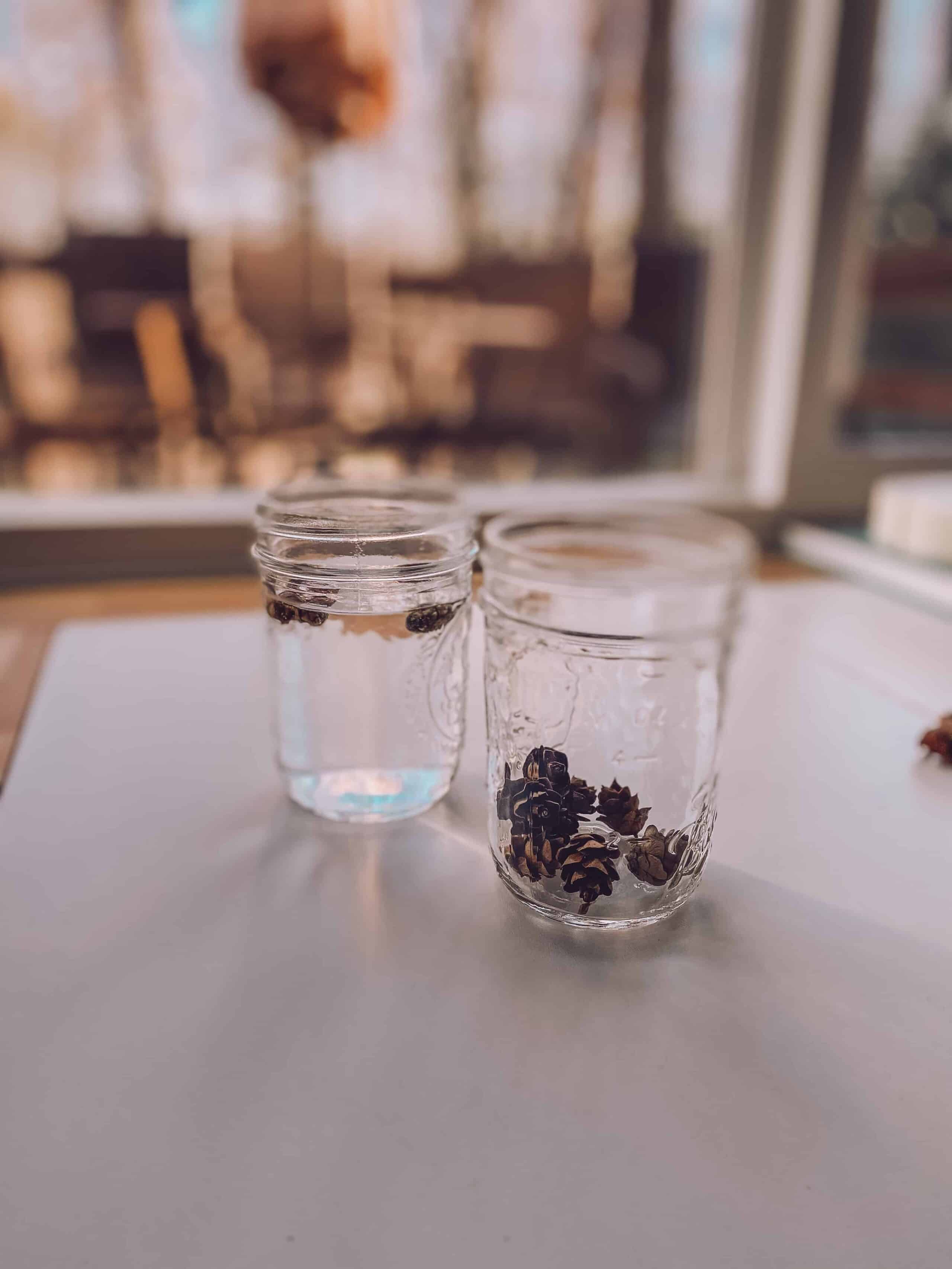
I love any lesson that I can be hands-on, nature inspired AND have lots of Spanish practice at its heart. This little experiment with pinecones is so quick and easy to set up and is a wonderful extension activity for Con mi Familia, Series 1 – Opposites week! It is also a great Science lesson for early learners and you can teach your child basic research techniques like how to form a hypothesis, change variables (like using hot or cold water) and form conclusions. The best part though, aside from all the learning to be had, is that it is fun!
The set up is simple, on any nature walk with your little ones search for pinecones! We gathered a lot and found cute little hemlock ones. White pine ones didn’t work that well for us, they just took too long, but the hemlock ones only took about 15 minutes to close up all the way! Way better for toddler attention spans. Look around and see what you can find. That could be a variable in your experiment too – using different pinecones and observing the time it takes for them to change.
We let our pinecones rest on our nature shelf for a few days to try out fully and open up all the way. Then we took two jars, left one empty and filled another with cool water. I actually gave the girls little tweezers and turned it into fine motor practice as I asked them to move a few into each jar. Then we had a snack, read a story and slowly watched as the pinecones in water closed! Magic!
Why do they close, you ask? Pinecones have seeds underneath their scales and they open and close based on the probability of their seeds germinating. Warm and dry conditions gives their seeds a better chance of spreading and germinating versus cold and wet conditions where the seeds would get too weighed down to travel and the cold could keep it from germinating.
How does this become an epic Spanish lesson? It is the perfect way to practice two opposites, mojada y seca – wet and dry! Depending on your Spanish level you can conduct the entire experiment in Spanish, asking your children to make predictions, or you can focus on practicing the basic vocabulary words to help your child not just learn the words but fully experience them.
Spanish words & phrases we practiced:
La piña (pee-nyah) – pinecone
Mojada (moh-hah-dah) – wet
Seca (seh-kah) – dry
¿Qué crees que va a pasar? (keh kreh-ehs keh bah ah pah-sahr) –
What do you think will happen?
¡Miren! La piña que está en el agua está cerrada ahora
(mee-rehn lah pee-nyah keh ehs-tah ehn ehl ah-gwah ehs-tah seh-rrah-dah ah-oh-rah)
Look! The pinecone that is in water is closed now!

